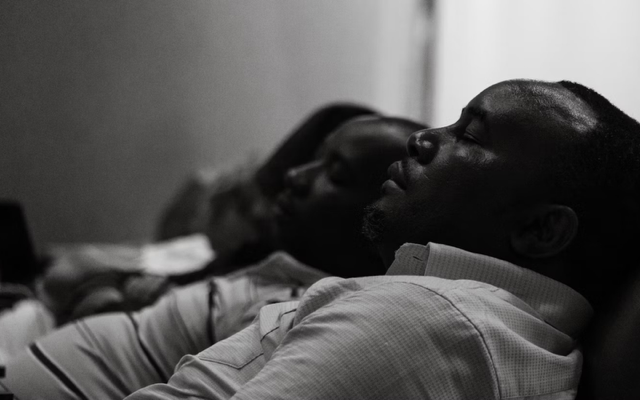The Intersection of Rest and Resistance: Understanding “Black Fatigue” in Today’s America

Credit: Reza Madani / Unsplash
As we find ourselves navigating the complexities of race relations in the United States during President Donald Trump’s second term, it has become paramount to examine the unique emotional and psychological burdens borne by African Americans. With historical undercurrents influencing contemporary experiences, one concept that resonates profoundly is “Black fatigue,” a term coined by Mary-Frances Winters.
The Burden of Racial History
The weight of centuries of systemic racism takes a toll that is often invisible to those not affected by it. Winters describes this fatigue as a daily burden, a persistent exhaustion stemming from microaggressions, societal inequities, and institutional neglect. This fatigue is not a newfound sensation; rather, it is a cumulative effect of navigating a world that constantly undermines the dignity and rights of African Americans.
Acknowledging Systemic Racism
The American Civil Liberties Union (ACLU) provides crucial insights into the cultural shifts currently taking place in America. Their report, “Trump on DEI and Anti-Discrimination Law,” notes that a significant portion of the population agrees that Trump’s presidency has exacerbated racial tensions. This acknowledgment is not merely a reflection of public sentiment; it underscores the need for vigilance against the relentless assault on racial justice and equality.
This enduring struggle is not foreign to the African American community. As highlighted by the Center for Progressive Reform, Trump’s administration has consistently targeted historically marginalized groups, perpetuating a cycle of disenfranchisement.
Understanding “Black Fatigue”
So, what exactly is Black fatigue? It represents the emotional, physical, and spiritual toll incurred from living in a racially charged society. Winters explains it as a debilitating state driven by the constant need to prove oneself while enduring daily indignities. This phenomenon differs significantly from the discomfort some European Americans might express when engaging in conversations about racism. Black fatigue is about survival—coping with a history that is always present.
In her book, Black Fatigue: How Racism Erodes the Mind, Body, and Spirit, Winters articulates the many layers of this fatigue. It includes the psychological and physical damages resultant from day-to-day interactions in a society entrenched in systemic racism. Winters emphasizes that this fatigue is deeply linked to the sluggish pace of societal progress in dismantling these entrenched systems.
The Psychological Landscape
The historical context of racial resistance often evokes a “whitelash” response—an instinctual reaction among those who perceive their power as threatened. This dynamic creates a cycle wherein significant societal advancements for marginalized groups are met by aggressive pushback from those invested in maintaining the status quo.
Polling data reflects a troubling reality: as documented by YouGov/The Economist, President Trump’s approval rating among African American voters has plummeted, indicating a deepening chasm between his administration and this demographic. While disapproval may seem turbulent, the response from the community is one of fatigue rather than rage.
Rest as a Form of Resistance
Given this landscape, it’s essential to consider how African Americans have begun to adopt rest as a form of resistance against systemic oppression. Embracing downtime is an act of reclaiming space and time that has often been denied. The call for rest can be seen as a refusal to engage in a society that demands constant productivity at first glance. Yet, in this context, it’s a profound affirmation of self-care and a necessary tool for coping with ongoing struggles.
So, the invitation is simple yet radical: fluff your pillow, find your comfort zone—be it on the couch or in your favorite show—and immerse yourself in rest. As Winters eloquently puts it, the urgent need for rest amidst turmoil is a valid response to the weariness stemming from decades of unmet justice and unresolved pain.
Cultural Impact and Implications
The momentum for rest as resistance has implications that extend beyond individual experiences. Culturally, it challenges perceptions of productivity and engagement in social change, underscoring that rest can indeed foster resilience. It pushes against the narrative that constantly encourages African Americans to be in a state of hustle. The message is clear: resting is not only a personal necessity but also a powerful act of subversive resistance against a backdrop of racial injustice.
This ongoing dialogue around Black fatigue and its implications serves as a vital reminder of the importance of compassion, rest, and the need for systemic change, illustrating the resilience inherent in the African American community as they navigate an often-hostile society.



